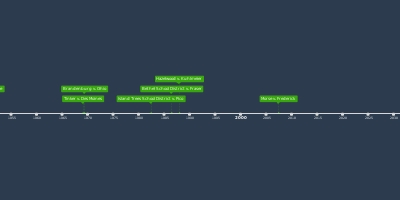mar 3, 1919 - Schenck v. United States
Description:
During World War I, Charles Schenck and Elizabeth Baer, two socialists, were handing out pamphlets that encouraged people to peacefully protest the draft, which they believed violated the Thirteenth Amendment's prohibition of involuntary servitude. They were charged with conspiracy to violate the Espionage Act of 1917 by trying to stop recruitment. They appealed that this violated their First Amendment rights. The court ruled unanimously that Espionage Act did not violate the First Amendment and that in a wartime, the congress had more power and the pamphlets posed a "clear and present danger."This case was a monumental in setting the parameters on what constituted as free speech, especially in a war time. War has always caused restrictions on free speech and this court case proved that. It demonstrated that though Americans have free speech, that free speech can be restricted based on the situation.
Added to timeline:
Date:
mar 3, 1919
Now
~ 106 years ago
